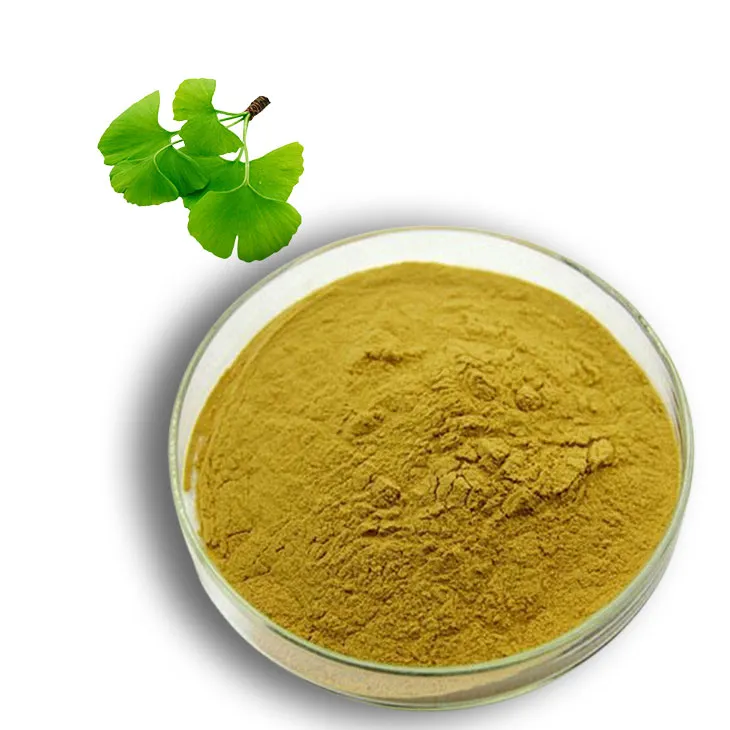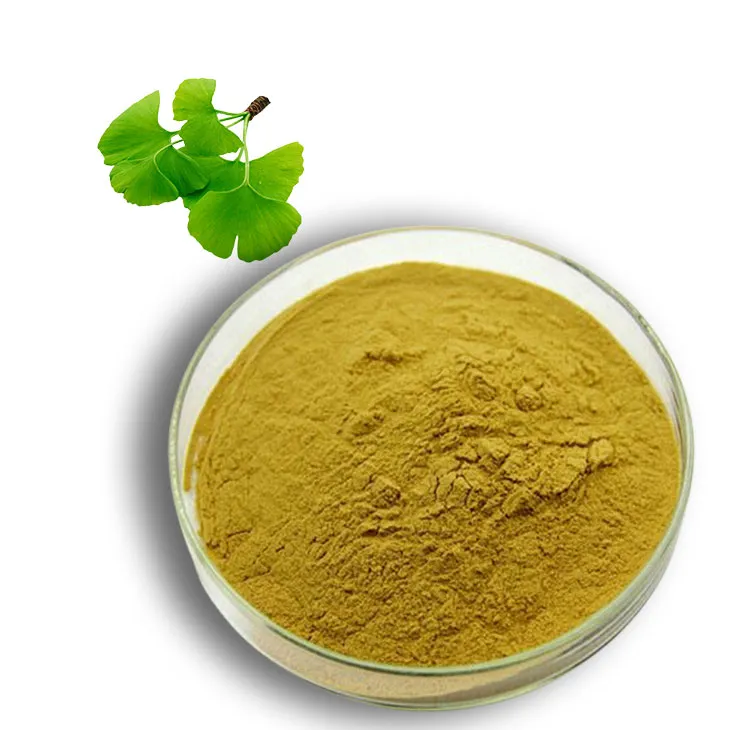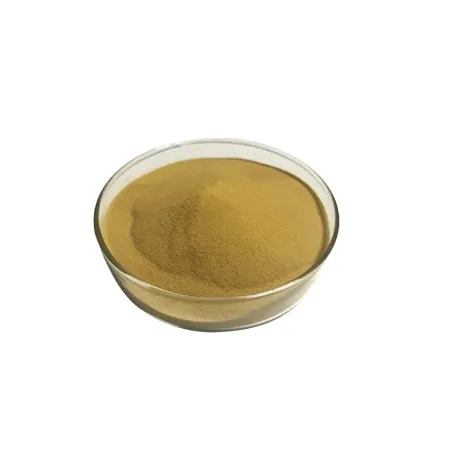- 0086-571-85302990
- sales@greenskybio.com
Ginkgo biloba extract: What are its benefits and how to take it?
2024-11-12

I. Introduction
Ginkgo biloba is one of the oldest living tree species on Earth, and its extract has been used in traditional medicine for centuries. In modern times, Ginkgo biloba extract has gained popularity due to its potential health benefits. This article will explore what these benefits are and how to take the extract effectively.

II. Benefits of Ginkgo biloba extract
1. Anti - inflammatory effects
Infl ammation is the body's natural response to injury or infection, but chronic inflammation can lead to various health problems. Ginkgo biloba extract contains compounds that have anti - inflammatory properties. These compounds can help reduce inflammation in the body, potentially alleviating symptoms associated with inflammatory conditions such as arthritis.
2. Boosting mental clarity
One of the most well - known benefits of Ginkgo biloba extract is its potential to enhance mental clarity. It may improve cognitive function, including memory, attention, and concentration. Some studies suggest that it can increase blood flow to the brain, which in turn provides the brain with more oxygen and nutrients. This can be particularly beneficial for older adults who may experience age - related cognitive decline.
3. Antioxidant properties
Ginkgo biloba extract is rich in antioxidants. Antioxidants are substances that can neutralize free radicals in the body. Free radicals are unstable molecules that can cause damage to cells and DNA, leading to various diseases and premature aging. By scavenging free radicals, Ginkgo biloba extract helps protect the body's cells from oxidative stress.
4. Improving circulation
The extract has been shown to have a positive effect on circulation. It can help dilate blood vessels, allowing for better blood flow throughout the body. This improved circulation can benefit not only the brain but also the heart and other organs. For example, it may reduce the risk of cardiovascular diseases by preventing the formation of blood clots and improving the overall function of the cardiovascular system.
5. Supporting eye health
There is some evidence to suggest that Ginkgo biloba extract may be beneficial for eye health. It may help improve blood flow to the eyes, which is important for maintaining good vision. Additionally, its antioxidant properties may protect the eyes from damage caused by free radicals, potentially reducing the risk of age - related macular degeneration and other eye diseases.
6. Reducing anxiety
Some people report that taking Ginkgo biloba extract has a calming effect and can help reduce anxiety. While more research is needed to fully understand the mechanisms behind this, it is thought that the extract may affect neurotransmitters in the brain that are involved in mood regulation.

III. How to take Ginkgo biloba extract
1. Dosage
The appropriate dosage of Ginkgo biloba extract can vary depending on several factors, such as the individual's age, health condition, and the reason for taking it. In general, for most adults, a typical daily dosage ranges from 120 - 240 milligrams of standardized extract. However, it is always best to consult a healthcare provider before starting any new supplement regimen.
2. Forms of Ginkgo biloba extract
- Capsules or tablets: These are the most common forms of Ginkgo biloba extract. They are convenient and easy to take. When choosing capsules or tablets, look for products that are standardized to contain a specific percentage of active compounds, such as 24% flavone glycosides and 6% terpene lactones.
- Tinctures: Ginkgo biloba tinctures are liquid extracts. They can be taken sublingually (under the tongue) for faster absorption. However, tinctures may have a stronger taste compared to capsules or tablets.
- Tea: Ginkgo biloba tea is another option. It can be a pleasant and relaxing way to consume the extract. To make Ginkgo biloba tea, steep the dried leaves or a tea bag in hot water for several minutes.
3. Timing of intake
It is generally recommended to take Ginkgo biloba extract with food to reduce the risk of stomach upset. Some people prefer to take it in the morning to experience its potential cognitive - enhancing effects throughout the day, while others may find it more beneficial to take it in the evening if they are using it to help with relaxation and sleep.
4. Precautions
- Although Ginkgo biloba extract is generally considered safe for most people, it can interact with certain medications. For example, it may increase the risk of bleeding when taken with blood - thinning medications such as warfarin. Therefore, it is crucial to inform your doctor if you are taking any medications before starting Ginkgo biloba extract.
- Some individuals may experience side effects such as headache, dizziness, or gastrointestinal discomfort. If you experience any adverse reactions, stop taking the extract and consult a healthcare professional.
- Pregnant and breastfeeding women should avoid taking Ginkgo biloba extract as there is not enough research to determine its safety during these periods.

IV. Conclusion
Ginkgo biloba extract offers a range of potential health benefits, from anti - inflammatory effects to improved mental clarity and circulation. However, it is important to take it correctly and be aware of any potential interactions or side effects. By consulting a healthcare provider and following the recommended guidelines, individuals can make an informed decision about whether Ginkgo biloba extract is right for them.

FAQ:
What are the main benefits of Ginkgo biloba extract?
Ginkgo biloba extract has several benefits. It has anti - inflammatory properties which can help in reducing inflammation in the body. It also has the potential to boost mental clarity, concentration, and memory. Some studies suggest it may improve blood circulation, especially in the brain, which can be beneficial for cognitive function and may also have a positive impact on conditions related to poor circulation. Additionally, it might have antioxidant effects, helping to protect cells from damage caused by free radicals.
Is Ginkgo biloba extract safe for everyone?
Ginkgo biloba extract is not safe for everyone. People who are taking certain medications, such as blood thinners, should be cautious as it may increase the risk of bleeding. Pregnant and breastfeeding women should also avoid it as there is not enough evidence to prove its safety during these periods. Some individuals may experience side effects like headache, dizziness, or gastrointestinal issues. It's always advisable to consult a healthcare provider before starting to take Ginkgo biloba extract.
How should Ginkgo biloba extract be taken?
The way to take Ginkgo biloba extract depends on the form it comes in. If it is in tablet or capsule form, it should be taken with water as directed on the product label. Usually, a typical dose might range from 120 - 240 mg per day, divided into two or three doses. However, this can vary depending on the specific product and the purpose of use. Liquid extracts should be measured carefully according to the instructions provided. It's important not to exceed the recommended dose without consulting a healthcare professional.
Can Ginkgo biloba extract interact with other medications?
Yes, Ginkgo biloba extract can interact with other medications. As mentioned before, it can interact with blood - thinning medications like warfarin, increasing the risk of bleeding. It may also interact with medications for diabetes, epilepsy, and some antidepressants. These interactions can either reduce the effectiveness of the medications or increase the risk of side effects. So, it's crucial to inform your doctor about any supplements, including Ginkgo biloba extract, that you are taking.
How long does it take to see the effects of Ginkgo biloba extract?
The time it takes to see the effects of Ginkgo biloba extract can vary. For cognitive improvements such as enhanced mental clarity or better memory, it may take several weeks to a few months of consistent use. However, for some people, they may notice a mild improvement in circulation - related symptoms, like less coldness in the extremities, within a couple of weeks. But individual responses can be different based on factors such as overall health, diet, and the specific condition being addressed.
Related literature
- Ginkgo biloba: A Review of Its Effects on Cognitive Function"
- "The Pharmacological Properties of Ginkgo biloba Extract"
- "Ginkgo biloba and Its Role in Anti - Inflammatory Processes"
- ▶ Hesperidin
- ▶ citrus bioflavonoids
- ▶ plant extract
- ▶ lycopene
- ▶ Diosmin
- ▶ Grape seed extract
- ▶ Sea buckthorn Juice Powder
- ▶ Beetroot powder
- ▶ Hops Extract
- ▶ Artichoke Extract
- ▶ Reishi mushroom extract
- ▶ Astaxanthin
- ▶ Green Tea Extract
- ▶ Curcumin Extract
- ▶ Horse Chestnut Extract
- ▶ Other Problems
- ▶ Boswellia Serrata Extract
- ▶ Resveratrol Extract
- ▶ Marigold Extract
- ▶ Grape Leaf Extract
- ▶ blog3
- ▶ blog4
- ▶ blog5
-
Organic Tongkat Ali extract powder factory.
2024-11-12
-
How to make powder with ashwagandha extract.
2024-11-12
-
Rosehip extract manufacturers from China.
2024-11-12
-
The best cat's claw extract in nature.
2024-11-12
-
Chinese Dandelion Leaf Extract Suppliers.
2024-11-12
-
Chasteberry Extract
2024-11-12
-
Angelica sinensis extract
2024-11-12
-
Phellodendron Extract
2024-11-12
-
Tongkat Ali Extract
2024-11-12
-
Lily extract
2024-11-12
-
Beetroot Powder
2024-11-12
-
Withania Somnifera Extract
2024-11-12
-
Hawthorn Extract
2024-11-12
-
Black Garlic Extract
2024-11-12
-
Mulberry leaf Extract
2024-11-12





















